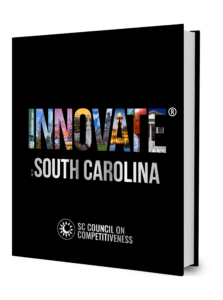Clemson University stands at the forefront of automotive and manufacturing innovation, serving as a vital asset for both research and workforce development for South Carolina’s economic engine. Clemson is home, for example, to the nation’s only graduate program in automotive engineering, offering M.S. and Ph.D. degrees that prepare students to lead in a rapidly evolving field. And in May 2025, Clemson made history by awarding the nation’s first-ever Bachelor of Science degrees in automotive engineering.
At the heart of Clemson’s automotive innovation is the Clemson University International Center for Automotive Research (CU-ICAR), located in Greenville, South Carolina. CU-ICAR is a premier research campus that brings together industry, government and academia to accelerate the development of next-generation mobility solutions. This 250-acre campus features cutting-edge facilities, including the Carroll A. Campbell Jr. Graduate Engineering Center, and serves as a collaborative environment where private industry and public research intersect.

Clemson’s Deep Orange program is a hallmark of experiential learning in automotive design and prototyping. Each year, interdisciplinary graduate students design and build a new prototype vehicle, solving complex, real-world challenges in areas such as electrification, autonomy and vehicle connectivity. This model creates career-ready engineers and deep partnerships with industry leaders such as BMW, General Motors, Honda, Ford, Toyota and more.
Research in power electronics, electric drive systems, vehicle-grid integration and mobility are positioning Clemson as a key player in the future of transportation. With a National Center for Transportation Cybersecurity and Resiliency funded by the U.S. Department of Transportation, Clemson is leading the effort to protect the nation’s connected systems against cyber attacks as a growing number of vehicles and more of the world’s infrastructure rely on the internet to move people and goods safely and efficiently.
Beyond automotive, Clemson excels in advanced manufacturing with emphasis on smart materials, additive manufacturing, sustainable production and robotics. At the Advanced Manufacturing Research Laboratory (AMRL) in Pendleton, Clemson researchers are advancing work in next-gen materials, including lightweight composites, nano materials and optical materials that support innovations in aerospace, defense, healthcare and consumer products. Clemson has a significant track record as a resource for the advanced materials industry, with 14 startup companies and landing parties based on Clemson advanced materials expertise and more than 70 advanced materials-based technologies available for licensing.
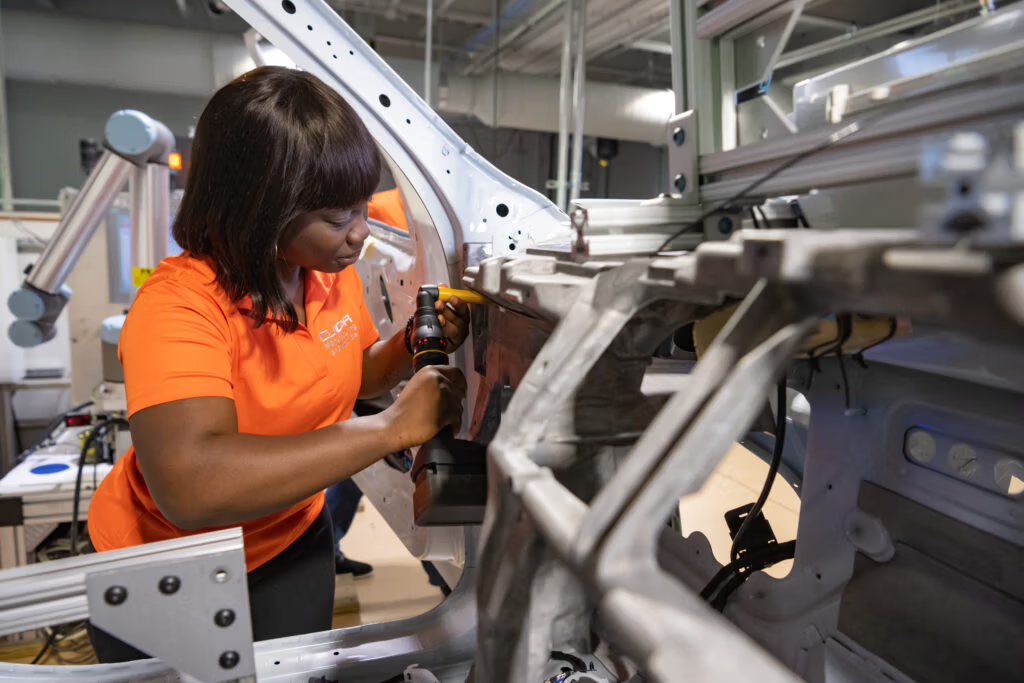
Advanced materials has long been a strategic research cluster at Clemson, supporting innovation across South Carolina’s manufacturing sectors. That work is set for a boost with the planned opening of the new Advanced Materials Innovation Complex (AMIC), a marquee, interdisciplinary research hub to lead innovation for the advanced manufacturing, energy and health sectors. The $130 million, 143,000-square-foot facility will be one of the university’s most technologically advanced with cutting-edge research and teaching laboratories, synergistic classrooms and collaborative spaces for exploration and conversation outside the lab and classroom.
Clemson’s strategic alignment with South Carolina’s manufacturing sector is evident in its partnerships with state agencies and companies seeking to address workforce and R&D needs. Clemson helps businesses adopt emerging technologies, improve supply chain resilience and meet sustainability goals. These collaborations support economic resilience and job creation across the state. As a nationally recognized Carnegie R1 research institution, Clemson pairs academic excellence with real-world industry impact, creating a thriving hub for transportation innovation, sustainable manufacturing and talent development.

CLEMSON UNIVERSITY RESEARCH FOUNDATION (CURF)
At the heart of Clemson University’s innovation ecosystem, the Clemson University Research Foundation (CURF) serves as a dynamic bridge between groundbreaking research and real-world impact. CURF empowers Clemson’s faculty, staff, and students to transform their discoveries into market-ready solutions that address global challenges and fuel economic growth across South Carolina and beyond. From securing patents and copyrights to forging industry partnerships, CURF plays a pivotal role in accelerating the commercialization of Clemson’s most promising technologies.
- Recent successes underscore this mission: Clemson researchers have developed a revolutionary anti-aging skincare line to minimize degradation and rejuvenate skin elasticity in partnership with industry experts. The company, Neolastin, is blending cutting-edge science with consumer wellness.
- Clemson professor and horticulturist Dr. Ksenija Gasic has patented several new peach varieties designed to help sustain South Carolina’s vital peach industry in the face of climate and disease challenges. These breakthrough advancements are already being adopted by growers and are expected to have a lasting impact on the agricultural economy across the region.
- CURF also leads Clemson’s involvement in the National Science Foundation’s I-Corps Southeast Hub, equipping researchers with customer discovery and entrepreneurial training and resources to aid in translating their innovations from laboratory to market.
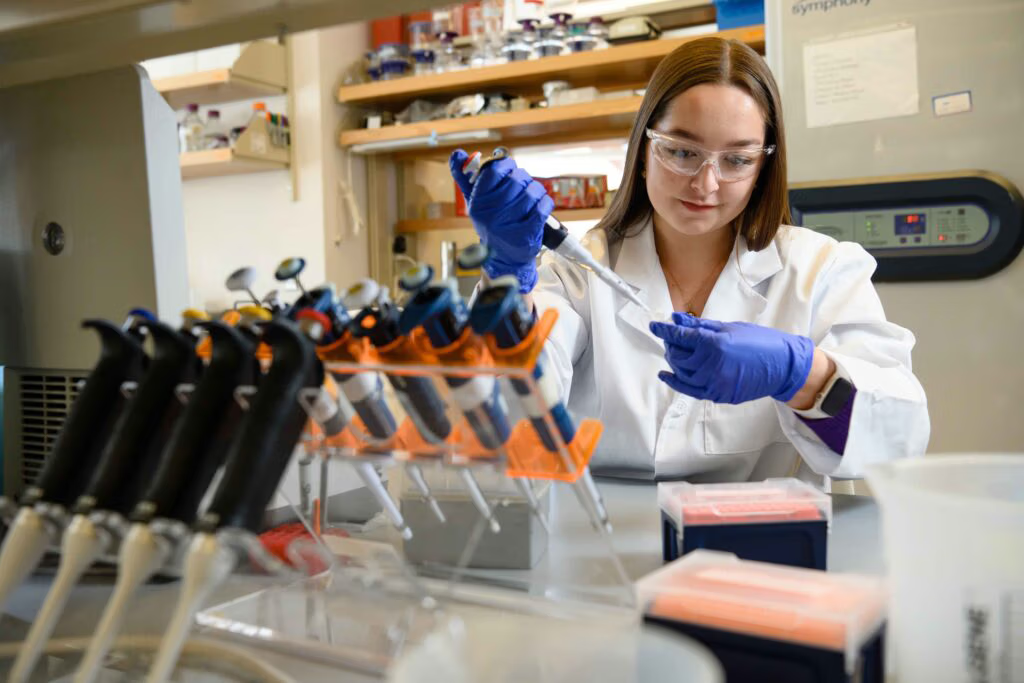
These initiatives directly support Clemson’s strategic plan, Clemson Elevate, which emphasizes advancing research, scholarship, and creative endeavors that improve quality of life and drive economic growth. CURF plays a central role in this vision by offering a robust suite of technology transfer services. As Clemson’s designated commercialization agent, CURF assists with innovation disclosures, intellectual property protection, and market analysis. CURF invests in and leverages a wide variety of tools to evaluate innovations across technical, market, and regulatory dimensions. CURF also provides patent landscape reports and identifies potential commercialization partners.
Once a disclosed technology is ready for marketing, CURF promotes it through a variety of channels, including online showcase, conference participation, and direct outreach to potential licensees. CURF also manages those licensing agreements, compliance, and long-term partner relationships. This allows the faculty inventors to focus on innovation while CURF handles the business of bringing their ideas to life. To further fuel this innovation, since 2015 CURF has invested over $1.9M to fund grants through a competitive Technology Maturation Fund program. This investment has led to a 12X multiple and over $19M in follow-on funding for the awarded projects.
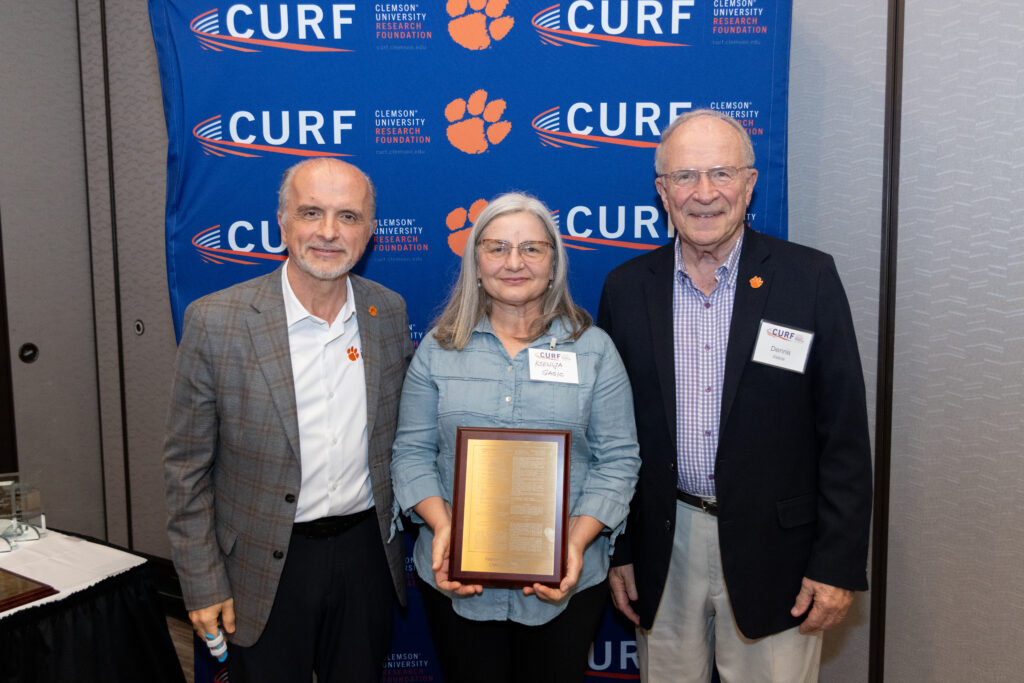
Beyond commercialization, CURF is committed to developing the next generation of innovation leaders. Since 2013, CURF has graduated more than 45 interns from a wide variety of academic backgrounds, including, but not limited to: bio engineering, chemistry, business, and plant and environmental sciences. These students, pursuing bachelor’s, master’s, and doctoral degrees, have gone on to successful careers in engineering, consulting, research, politics, and marketing, with many continuing their education in medical and law schools. The internship program reflects CURF’s dedication to mentorship, experiential learning, and workforce development.
As Clemson continues to rise in national research prominence, CURF remains a catalyst for translating academic and research innovations that emerge from the Clemson enterprise into new knowledge, services, and products that benefit the citizens of South Carolina, the United States, and beyond.
You can learn more about and stay up to date with CURF and Clemson research by visiting curf.clemson.edu or following us on social media.

CLEMSON UNIVERSITY
Fueling Energy Innovation for a Sustainable Future
Clemson University scientists are working everyday to find solutions to the world’s growing demand for reliable energy to fuel our economy and quality of life. Clemson is home to unique world class facilities that power innovations in energy distribution, generation and storage. Clemson teams are identifying new materials for energy storage that could be cheaper and more abundant than lithium. They are working closely with the private sector on secure, resilient energy-distribution systems. They are working to enhance renewable energies and reduce energy consumption. And, they are working with educators throughout the state to prepare a workforce ready to support this critical industry sector. Energy has long been one of Clemson’s strategic innovation clusters and continues to grow with support from federal funding agencies and industry and community partners.
Spanning hundreds of research projects, Clemson’s energy portfolio demonstrates a robust, interdisciplinary focus on advancing clean technologies, improving energy infrastructure, and promoting sustainable solutions that serve South Carolina and beyond. Clemson’s energy research addresses the development and optimization of battery technologies and energy storage systems, investigating new materials for higher energy density, longer life cycle and safer operation. Another notable area is renewable energy systems, particularly solar and wind. Clemson researchers are exploring next-generation photovoltaic materials, hybrid solar technologies and power electronics that increase the efficiency and resilience of renewable systems.
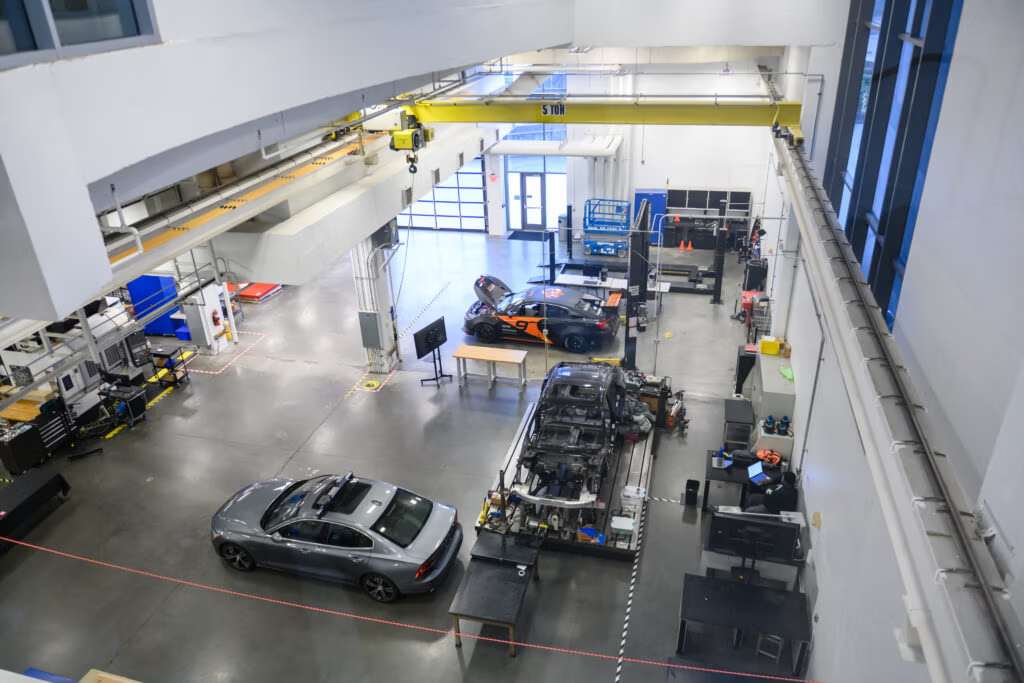
In the realm of Power Systems and Smart Grid Technology, Clemson is pioneering research in energy distribution, load balancing and system resilience. Several projects examine the integration of renewable energy sources into the grid and the use of advanced analytics for real-time system monitoring.
Clemson is a national leader in this work and boasts one of the nation’s most advanced energy research centers, The Dominion Energy Innovation Center (EIC). Strategically located at the Clemson University Restoration Institute’s (CURI) campus at the former U.S. Naval Base in North Charleston, South Carolina, EIC houses the Duke Energy eGRID — an electrical grid simulator that can simulate the electrical grid of any country in the world — and the world’s most-advanced wind-turbine drivetrain testing facility.
The Duke Energy eGRID (Electrical Grid Research Innovation and Development) center allows for testing of new inverters, converters, generators, energy storage systems and other elements to evaluate performance and resiliency in a working grid used to distribute energy on a commercial scale.
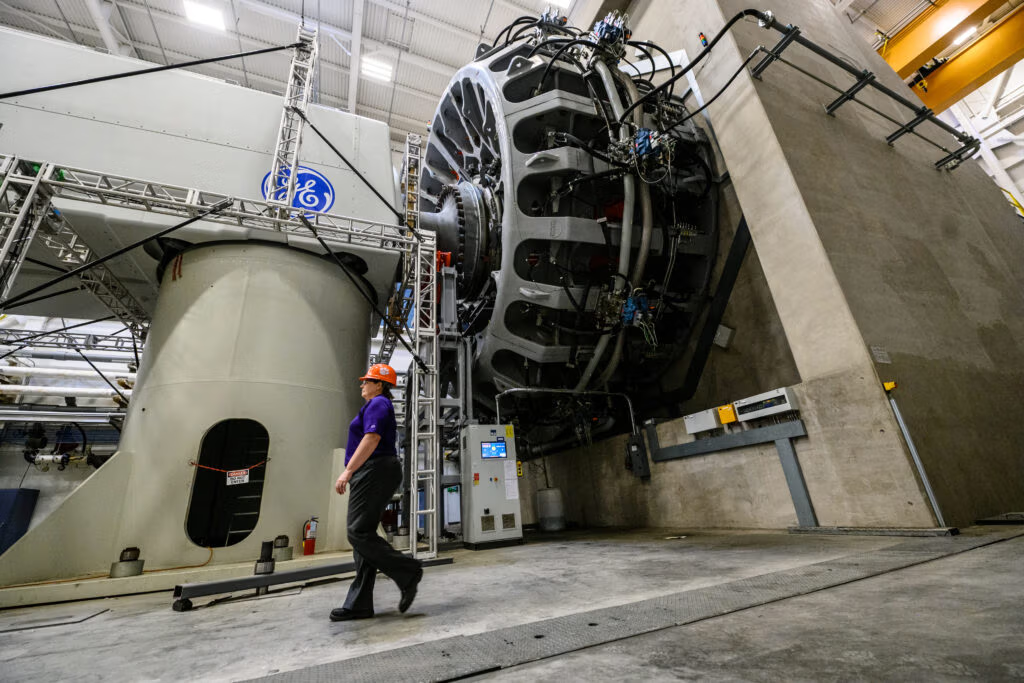
The wind-turbine drivetrain testing facility is capable of full-scale, highly accelerated mechanical and electrical testing of advanced drivetrain systems for wind turbines. The larger of the two test stands is a flexible unit that accommodates complete geared and direct-drive wind-turbine nacelles up to 15 MW, in addition to large turbine gearboxes and generators.
Additionally, Clemson is a core member of the Battelle Savannah River Alliance that manages the U.S. Department of Energy’s Savannah River National Laboratory (SRNL). SRNL is working to advance practical, cost-effective solutions to the nation’s environmental, nuclear security, nuclear materials management and energy manufacturing challenges. Clemson’s strong relationship with SRNL spans decades, providing a unique opportunity to advance energy research, innovation and workforce development programs.
Clemson’s energy research is defined by integration across disciplines and real-world impact through strategic collaborations with South Carolina’s industry leaders. Taken together, Clemson University’s energy research portfolio is not only advancing scientific discovery, it’s also delivering on the promise of a more sustainable, efficient and equitable energy future.
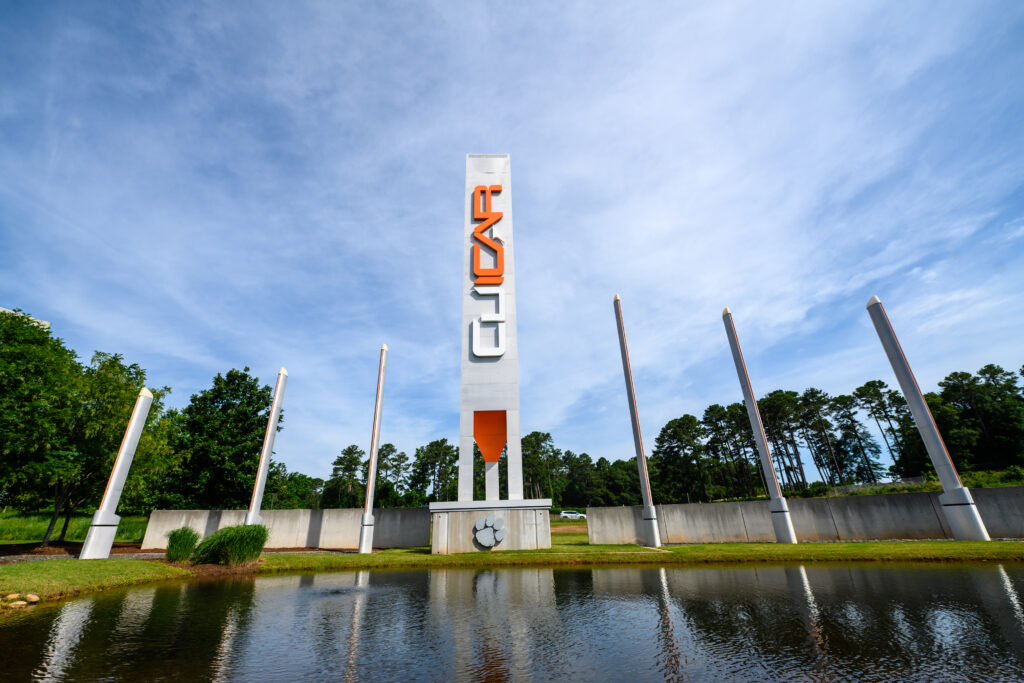
A Strategic Catalyst for Business Growth in South Carolina
Located in the dynamic Upstate region, Clemson University is one of the nation’s premier public research universities and a cornerstone of South Carolina’s economic and innovation ecosystem. As a Carnegie R1 institution — the highest classification for research activity — Clemson combines academic excellence with real-world impact, offering unparalleled opportunities for businesses seeking strategic partnerships, skilled talent and collaborative research.
Clemson’s reach extends beyond its 1,400-acre main campus in the foothills of the Blue Ridge Mountains. With Innovation Campuses, Research and Education Centers (RECs), Extension offices, and rural health initiatives in all 46 counties of the state, the university is deeply embedded in the fabric of the state’s economy. According to an independent economic impact study, Clemson boasts statewide economic impact of $6.4 billion, which accounts for the impact of operations, capital investment, workforce development, athletics events and student and visitor spending. Beyond South Carolina, Clemson’s total economic impact reaches $10.6 billion nationwide, supporting 54,000 jobs across the U.S. and driving innovation through its top-tier R1 research institution status.

Clemson researchers and students are tackling challenges in advanced manufacturing, energy transformation, precision agriculture, AI and cybersecurity, and health care — sectors vital to South Carolina’s growth.
The university is actively building a new College of Veterinary Medicine, responding to critical workforce shortages while strengthening animal health infrastructure statewide. This endeavor highlights Clemson’s ability to mobilize academic, government and industry partnerships to solve high-impact problems.
With more than 80 undergraduate majors, 90 minors and 100 graduate programs, Clemson produces job-ready graduates equipped with critical-thinking, leadership and technical skills. Through its renowned Creative Inquiry research program and deep internship and co-op connections with industry, Clemson ensures that students graduate with meaningful, hands-on experience, aligning academic offerings with employer demand.
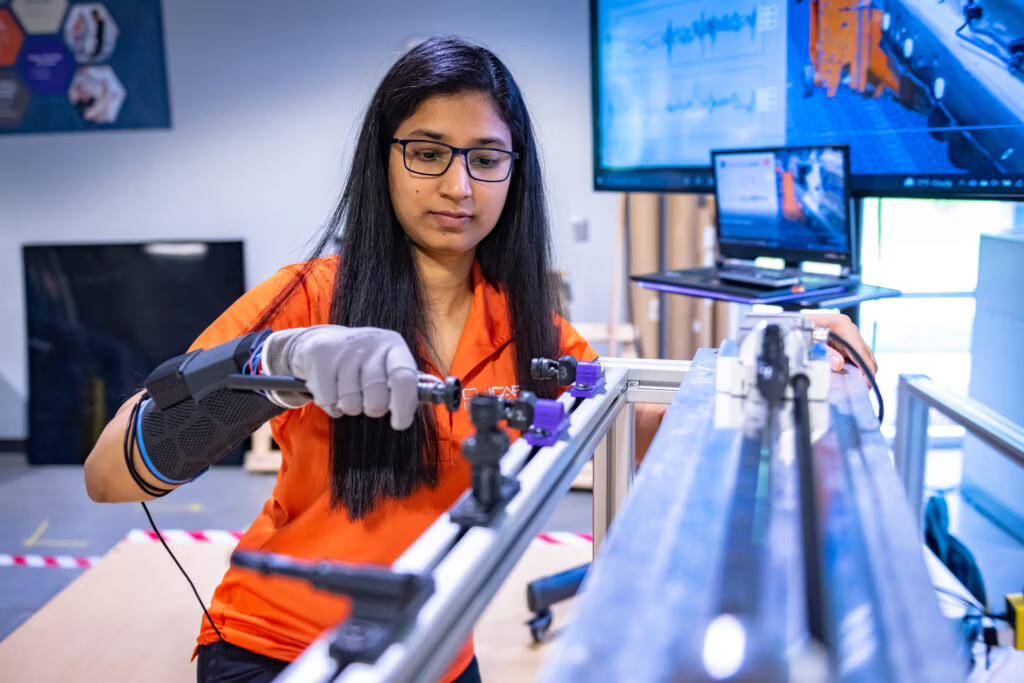
Moreover, Clemson Elevate — the University’s strategic plan — prioritizes transforming lives statewide through educational, economic and health outreach. Clemson works directly with South Carolina companies to boost competitiveness and meet workforce needs, while programs like Emerging Scholars enhance college readiness in underserved communities.
Ranked among the top 40 public universities in the U.S. by U.S. News & World Report, Clemson is also recognized for best value, veteran support, co-op programs and alumni engagement. The University has earned a top 10 ranking for student experience and is consistently lauded for its inclusive excellence, sustainability efforts and industry collaboration.
Clemson is not just a place of learning — it’s a platform for transformation. Businesses locating in South Carolina benefit from access to Clemson’s faculty expertise, research infrastructure and robust alumni network. The University’s Office of Corporate Partnerships and Strategic Initiatives serves as a concierge for industry, facilitating collaborations that drive mutual success.

Whether launching a startup, expanding operations or pursuing research and development, Clemson University offers South Carolina’s business community a trusted, high-impact partner — driven by purpose and powered by innovation.

